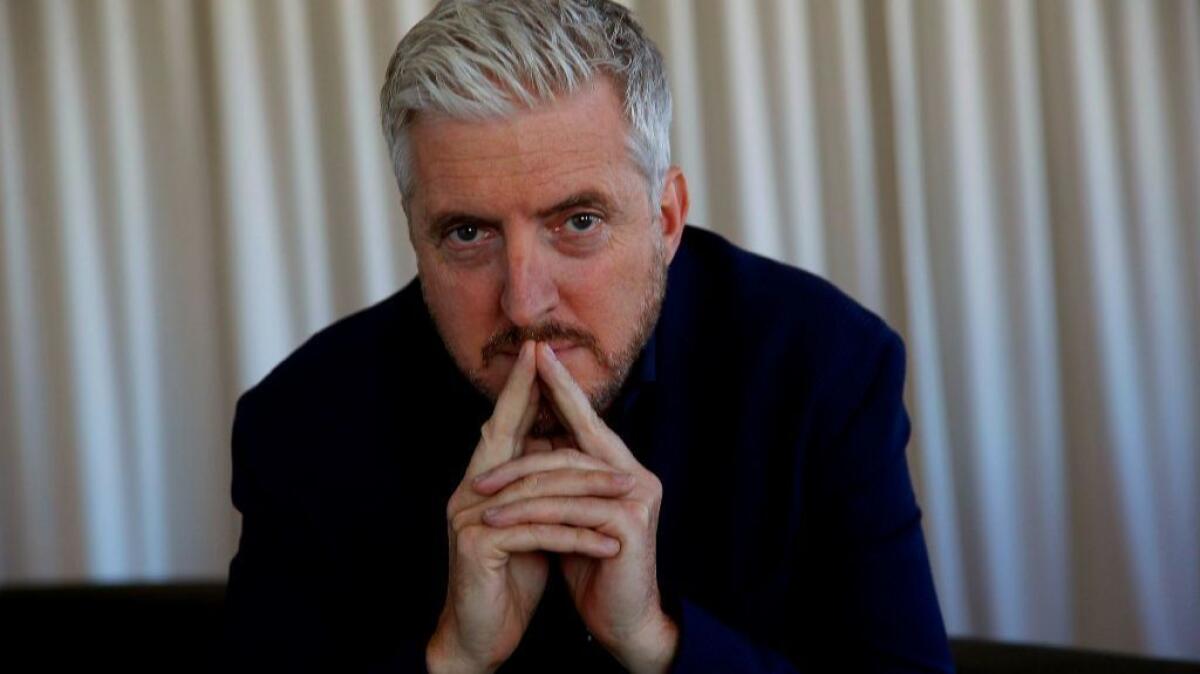A daunting task: Writing the words to put in Winston Churchill’s mouth

- Share via
At the heart of “Darkest Hour” is a proposition, a writer’s one: that words have the power to unite and, occasionally, can even be enlisted to change the world. Winston Spencer Churchill is the personification of this proposition. He lived by the pen and died having published more words than Shakespeare and Dickens combined. If you think his reputation overly elevated, try to image any world leader of recent times winning the Nobel Prize in Literature, as he did in 1953.
His is some story, but one that presents a massive challenge to anyone trying to tell it. How do you write words for Winston Churchill, put fitting phrases into such a memorable mouth, create witticisms worthy of him, actions characteristic of him?
To write the screenplay — the real story of how close he and Britain came, in May 1940, to negotiating a peace deal with Adolf Hitler, and so surrendering central and Western Europe to Nazi rule (unthinkable now) — there’d be mountains of research to wade through in order to correctly portray both man and times. I’d have to show him as an immense wit in times of crisis, wooing his wife, a bully with his colleagues, a man at once certain of himself and at the same time full of private doubts.
So intimidating was this writing challenge I simply shelved the idea, for more than a decade ...
— Anthony McCarten
So intimidating was this writing challenge I simply shelved the idea, for more than a decade, back there where many other good and bad ideas, then and now, are gestating/incubating/suppurating/vegetating/festering… (You see what is happening here? This is how Churchill affects you: just as in the marked-up original manuscripts for his greatest speeches — deletions and insertions of words everywhere — Winston’s infernal/eternal search for the right word, the crucial word, starts to become your own, not letting up until you get something close to the right ones in the right order.)
But then, four years ago, after the happy experience of making “The Theory of Everything,” I felt a little braver and so blew the dust off this old idea and tried to take the Churchillian position that it was better to go down fighting than never to have fought at all.
With this the research phase began.
And what a character I discovered, a man I’d never expected: an unpopular man (at the time) who nobody really thought a good idea, indeed most thought him a lousy one, but who, when the invasion of Britain by Nazi hordes seemed mere hours away, wrote — with typist at the ready and his pen (and scotch and soda) in hand — three of the greatest speeches ever written within one four-week span of inspired grandiloquence and all by himself. On the matters being addressed in these speeches he also changed his position by the day and sometimes by the hour.
Now how could such emphatic speech-making, not to mention the world-changing decisions that resulted from it, be born out of uncertainty, doubt and this open consideration of awful alternatives? The answer, the recondite answer, is that the best decisions are always born out of full consideration of the ghastly alternatives: only fools look solely at the most desirable ones.
The screenplay, and later the nonfiction historical book that I wrote to amplify the background of the film, emerged from these questions and from this fascination. Both aim to look at the working methods and leadership qualities and private life and red-hot thinking of one man in these critical days from which — rather miraculously — he emerged with three coups de theatre. Ancient models may exist for the kind of fireworks he three times delivered in May and early June 1940 — notably the speech of Marcus Antonius in defense of Aquillius, during which Antonius tore open the tunic of Aquillius to reveal his battle scars — but the British house of parliament and the British public, had heard nothing like it.
It was truly the case that in those dark days of 1940, when Britain stood alone before a monstrous enemy, Winston mobilized the English language and sent it into battle. This isn’t merely a pretty metaphor. Words were really all he had back then. But if you are to be left with only one thing to fight with, then — the lesson must be — you could do a lot worse.
WATCH: Video Q&A’s from this season’s hottest contenders »
More to Read
From the Oscars to the Emmys.
Get the Envelope newsletter for exclusive awards season coverage, behind-the-scenes stories from the Envelope podcast and columnist Glenn Whipp’s must-read analysis.
You may occasionally receive promotional content from the Los Angeles Times.










